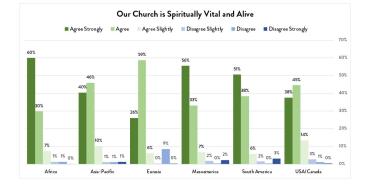Beyond Toil: Recovering Work as Gift

“I do not like work, even when someone else does it.”—Mark Twain, “Lost Napoleon” (published 1924)
Few people would disagree with Twain’s quote. The predominant sentiment about work is well captured in Twain’s statement: work is a burden and a chore, a necessity for survival. In rare cases, work is enjoyable and life-giving, but that seems to be the exception reserved for a fortunate few. Work is not to be enjoyed; it is to be endured!
The famous American historian, Studs Terkel, echoes Twain’s statement in the publication of his collection of oral histories of work in America. Aptly titled Working, Terkel’s 1974 book is comprised of voices and experiences across various industries, positions, and pay scales—from stockbrokers to farmworkers to police officers to mail carriers to supermarket clerks. Terkel casts a wide net, and despite the rich diversity of responses he received, he finds a common thread that work is “about violence . . . to the spirit as well as to the body.” “A happy few,” he writes, “find and savor their daily job.”
Now, over 40 years later, Terkel’s oral histories continue to reflect popular notions of work despite the fact that people are defined by their jobs now more than ever. People work increasingly long hours and struggle to turn off the very technology intended to lessen their workload. The driving ideal is to be free of work. Over the years, popular culture has both reflected and reiterated this ideal. The saying, “Thank God It’s Friday” (TGIF), has so infiltrated our view of work that television networks and restaurant chains employ it. Similarly, comic strips like Dilbert, movies like 9 to 5 (later also a television series and Broadway hit) and Office Space, and songs like “Working for the Weekend” all speak the truth about eagerly waiting for the “5 o’clock whistle.” Even though the era of factory whistles has passed, the meaning has not been lost.
Work: Should We Love it or Hate It?
Not surprisingly, Christians have a complicated relationship with work. On the one hand, many Christians share the predominant sentiment that work is not to be enjoyed but endured. Work is ultimately something we have to do in order to survive and meet basic needs, to support ourselves and our families, to secure retirement, and to tithe (if we remember). On the other hand, Christians have heard that their work can be of value and of service to God and the world. Christians are often encouraged to regard their work as vocation or calling no matter its form: paid or volunteer, household or employed, “manual” or “intellectual” (surely a false dichotomy). Indeed, not everyone experiences work as drudgery. For some, it is life-giving and meaningful, even while for others it is burdensome or even inhumane.
While Christians may be inclined to blame popular culture for any confusion and misunderstanding of work, it is important to recognize that the notion of work as a chore is deeply rooted in biblical interpretations of Genesis 3:17-19—the “curse of toil.” Christians have long looked to this passage as a primary way to identify the nature of work:
Cursed is the ground because of you, in toil you shall eat of it all the days of your life; thorns and thistles it shall bring forth for you; and you shall eat the plants of the field. By the sweat of your face you shall eat your bread until you return to the ground.
Not surprisingly, a dominant perspective of work throughout Christian history is to regard it as instrumental: a means-to-an-end or a tool, having no inherent value in itself. It is only valuable insomuch as it serves some larger goal, like putting food on the table or increasing one’s purchasing power.
Furthermore, work (especially physical work—the kind that produces sweat) is viewed as the inverse of paradise, a result of “the Fall” and human sin. Work is punishment. From this perspective, work is rarely seen as good. It becomes merely a means to some other eventual good: something to be tolerated and endured but never celebrated or appreciated for what it is. Just think, for example, about how people and companies love to throw parties for work that is completed. How odd it would seem if a cabinet shop stopped midway through a project and threw a party to celebrate the delicate process of staining and lacquering. No, we celebrate work when it is done, which in the modern world is another way of saying we celebrate work when we get paid.
Work is undoubtedly instrumental. There is little argument to be had there. We work in order to put food on the table, pay bills, provide shelter, etc. But when work is perceived as only instrumental, it is no longer able to be seen and experienced as a gift. Such a shortsighted understanding of work should cause pause for Christians, not simply because greater awareness of the gift of work might help us appreciate and enjoy it but because the notion of work as a gift actually better reflects the testimony of Christian scripture.
A Biblical Perspective on Work
The first chapters of Genesis provide a starting point for understanding work. Genesis 1 notes how God worked: six days of work and then rest on the seventh to establish the rhythm of work and rest. Genesis 2 highlights God’s command for humans to keep the garden and be stewards of the earth. God even asked Adam and Eve to name every living creature. Most significantly, the first chapter of Genesis notes that God declared “everything that he had made” to be very good (Gen. 1:31). Recognizing work as an intrinsic part of God’s creation suggests that work can be good for a “fortunate few” but that work ought to be good for all. God intended work to be good.
Genesis continues by identifying the way human sin opposes the goodness of God’s creation, but the overall testimony of Christian scripture remains that restoration and redemption come in Jesus Christ. This is the good news Christians confess, in Jesus Christ, new creation comes to be. For Christians, then, toil and violence offer incomplete understandings of work. They are visions of work still encapsulated in a creation that God is actively redeeming and restoring. As such, Christians are called to live into the new creation through their work and to witness to God’s redemption in response to God’s gift.
Ultimately, then, the purpose of understanding work as a gift is not to make us feel better about what we do but to remind us of our calling to respond to God’s gifts faithfully. Understanding work as a gift helps us see the beauty and grace present in our working world, however small or infrequent, and redirects our work toward the needs of our neighbors.
Christian Leaders on Work
John Wesley, the founder of Methodism, and before him Martin Luther, the Protestant reformer, are among many Christian leaders who suggest that daily work is best understood in light of loving one’s neighbor. Christians are repeatedly called to work for the well-being of their neighbors, placing the needs of others above the personal desire for more wealth and goods. Certainly, work must not be done to the detriment of one’s neighbor, which is not always easy to determine in today’s globalized and highly complex market system. A neighbor is not simply someone who lives nearby. In the twenty-first century, human activities of production, consumption, and exchange affect persons, communities, and ecosystems around the world. The classification of neighbor has expanded, and Christians are called to continually discern how their work—a gift from God—can, in turn, be a gift for others.
John Wesley also viewed Christian work as a talent (in the biblical sense), entrusted to us for the sake of others. Much like Jesus’ Parable of the Talents, work is a gift of which we are stewards. We are not simply stewards of the goods that work produces but of the work itself: the gifts of creativity, relationship, industriousness, apprenticeship, perseverance, patience, expectation, and even playfulness. These are gifts experienced in and through work—a constant reminder that our work is more than toil and more than just a “means-to-an-end.”
Work as Witness of New Creation
Ultimately, Christians are called to give witness to the new creation, and nowhere is this more important than in the ordinary tasks of life. In a lifetime, most people will spend more time working than on any other activity. Work is, as theologian Karl Barth once said, “the active affirmation of our human existence.” This highlights the importance of daily faithfulness in our work.
As good stewards of the gift of work we’ve been given, Christians are called to rediscover beauty and pleasure in work and actively transform it for the people who may experience it as violence or drudgery.
Work is a gift. Let us share in and extend its goodness!
Josh Sweeden is dean of the faculty at Nazarene Theological Seminary.
Holiness Today, May/June 2018.
Please note: This article was originally published in 2018. All facts, figures, and titles were accurate to the best of our knowledge at that time but may have since changed.




